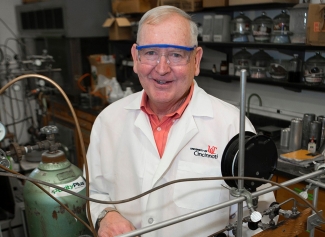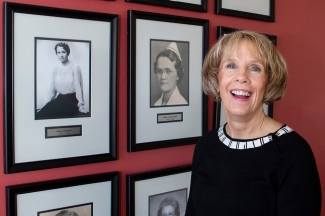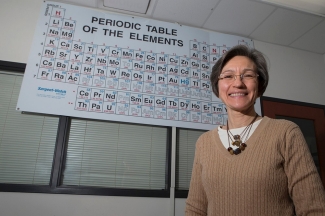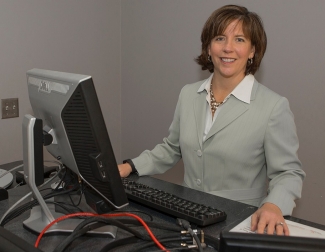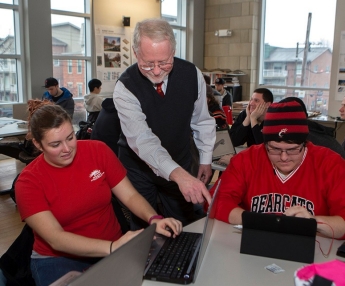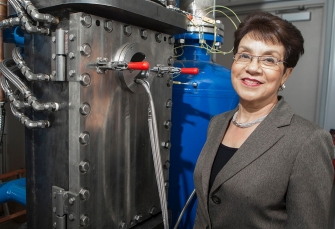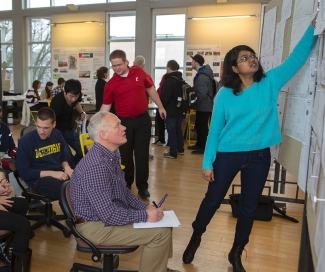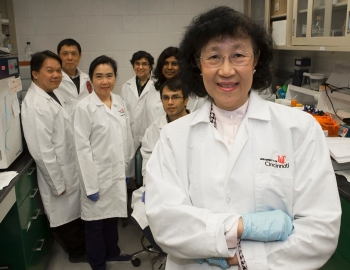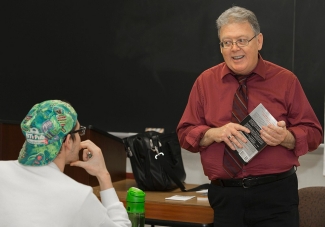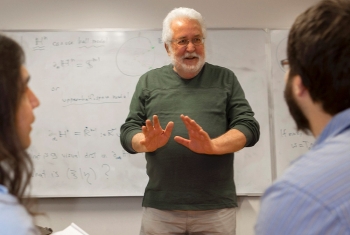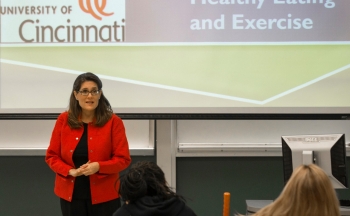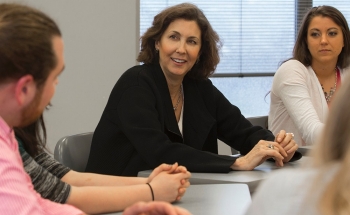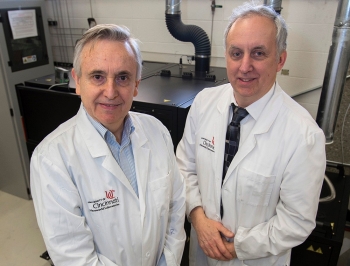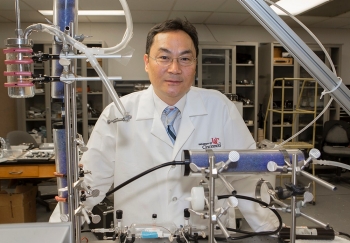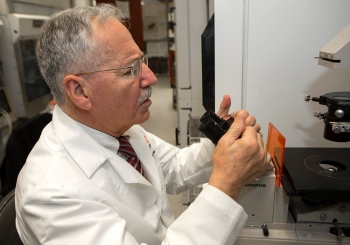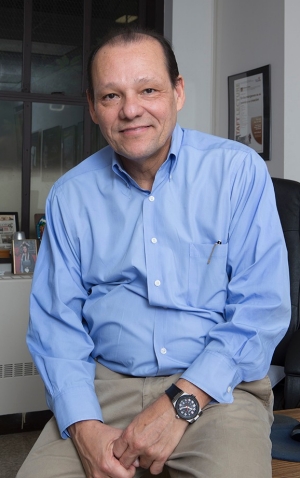Faculty Career Awards
- Bruce Ault
Distinguished Professor, Chemistry
McMicken College of Arts & Sciences
Bruce Ault is earning his fifth all-university faculty award in his 39-year career at UC.
Today, Ault, who is a Fellow of the American Association for the Advancement of Science, adds the Faculty Career Award to his previously earned Rieveschl Award for Distinguished Scientific Research (2014), Faculty Award for Exemplary Contributions in Service to the University (2006), Distinguished Teaching Professor (2009) and George Barbour Award for Good Faculty-Student Relations (1995).
These previous awards speak of Ault’s high-caliber teaching, service on campus and his national and international standing within the area known as matrix isolation spectroscopy, a field in which he ranks third in the world in the number of publications.
This year’s Faculty Career Award speaks to his longtime dedication to research, service and teaching. Ault has made major contributions to all areas of faculty endeavor throughout his 39-year career and has been involved with the community, hosting events on campus and performing service.
His 230 refereed publications, often highly cited, are found within flagship journals and a global database devoted to matrix isolation spectroscopy.
The research is vital to understanding many natural processes (like those associated with ground-level ozone) as well as directing or controlling reactions in order to improve products (like solar panels).
Because of Ault’s recognized contributions to the field (including identification of elusive elements formed as part of photochemical reactions involving ozone), his work has been continuously funded by the National Science Foundation for the past 36 years.
